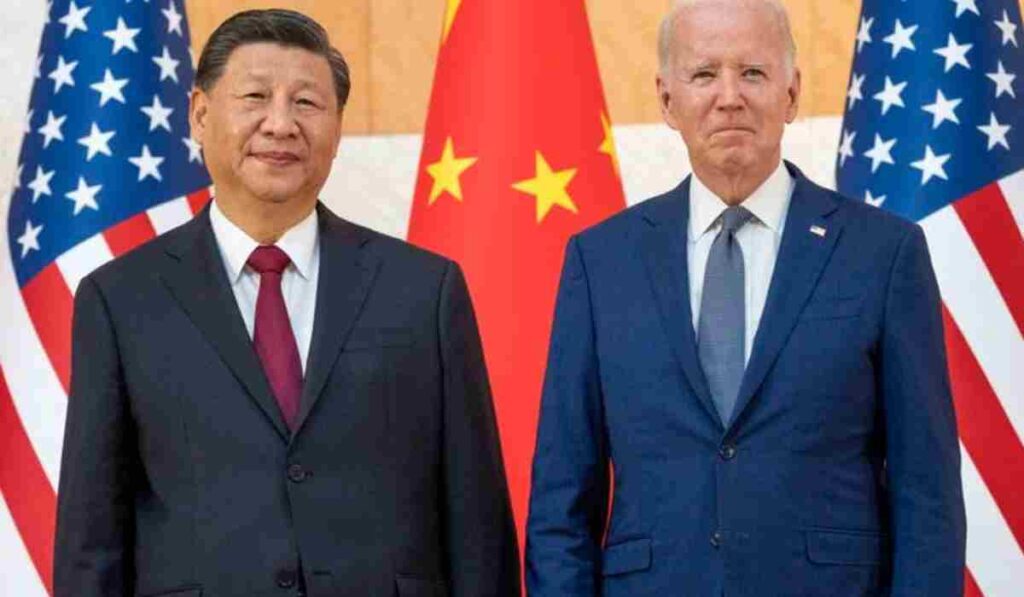China, U.S. advance talks on a deal to speed up cancer drug trials
US and Chinese health experts said at an online conference this month that the two countries will make progress toward an agreement to cooperate in the fight against cancer through multi-regional partnerships in clinical trials. The talks follow a summit between US President Joe Biden and Chinese President Xi Jinping in Indonesia in November, in which the two leaders explored areas for potential improvement in relations strained by geopolitics and other differences.
Jingquan Bi, executive vice chairman of the China Center for International Economic Exchanges and former commissioner of the China Food and Drug Administration, told the U.S. at a Dec. 2 meeting. He hoped he could help. China’s participation in joining Project Orbis. Removing those barriers will help “encourage simultaneous regulatory reviews between the two countries and speed up approvals of cancer drugs,” B said.
Project Orbis is a U.S. international program under the Food and Drug Administration (FDA) Oncology Center of Excellence in which member countries agree to concurrently review clinical trial data to shorten the time needed for cancer patients to receive new drugs and treatments. Eight countries — though not China — are currently participating in Project Orbis, which launched in 2019.

Those eight U.S. Canada, Australia, Switzerland, Brazil, Israel, Singapore, and the UK. The FDA Oncology Center of Excellence is a signature achievement of President Biden’s White House cancer moonshot, which first began in 2016. “I don’t think there are insurmountable difficulties in signing a confidentiality agreement between China and the US,” Bi said.
Executive Vice Chairman of China Center for International Economic Exchanges in Beijing. “I hope both sides can strengthen communication on this issue and sign a draft and confidentiality agreement,” he said. His former agency – the China Food and Drug Administration – was restructured as the National Medical Products Administration.
Bi, in turn, created regulatory reforms on clinical trial data transparency and led the Chinese agency to join the International Council for Harmonization in 2017, ushering in a new regulatory environment in China following global standards. US FDA oncology chief Dr. Richard Pajdur said at a meeting organized by the New York-headquartered Memorial Sloan Kettering Cancer Center, or MSK, and the Guangzhou-based Chinese Thoracic Oncology Group, or CTONG, those member countries of Project Orbis “want.
Progress by asking pharmaceutical. Industry to make simultaneous submissions to countries with significant delays in new drug approvals. “Many times these delays occur over months, but many times patients are delayed in receiving important cancer drugs,” he said. “So we’ve asked drug companies to have simultaneous submissions to countries where these delays exist, and then we’ll work with these countries to review these applications in a relatively expeditious manner.”
By the end of 2021, the Project Orbis network will be part of 75 FDA drug applications linked to cancer care; 35% targeted new types of cancer-related molecules, and a total of 250 applications were submitted worldwide in eight partner countries, said Pazdur, who oversees Project Orbis as director of the Oncology Center of Excellence at the FDA.
“The success of this program in Washington D.C. is unparalleled in fostering communication among regulatory agencies to achieve truly uniform, regulatory standards,” he said. “We welcome new partners. However, we have limitations and some of these are just financial and logistic applications. All partners must have confidentiality requirements with all partners. So this causes some problems in bringing new countries to Project Orbis. ,” without mentioning China. He \ he said.